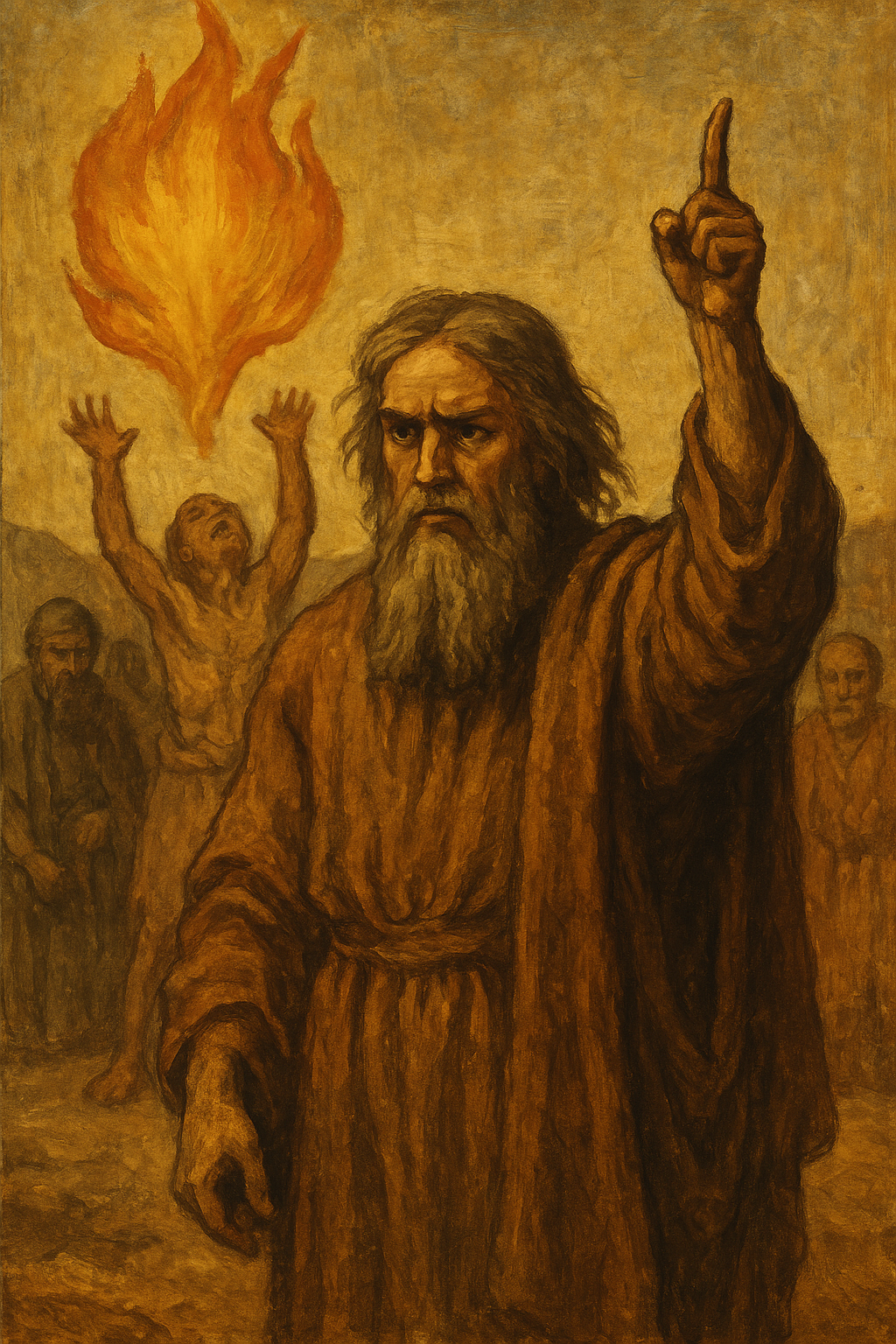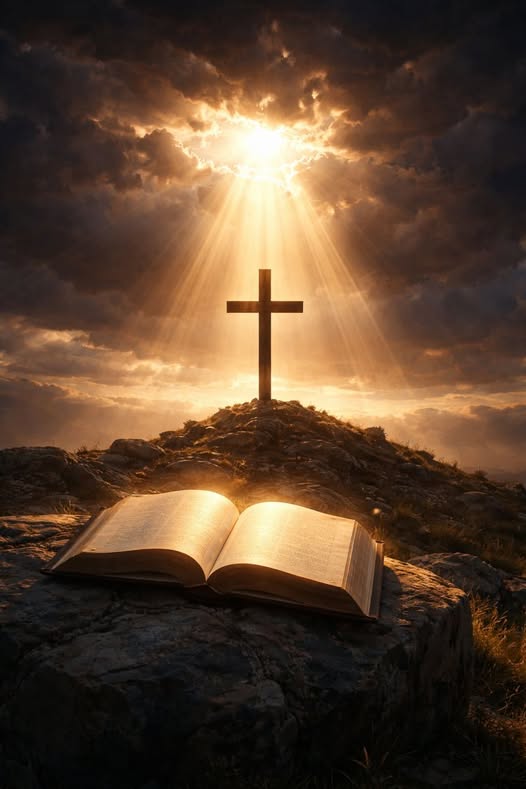
In modern usage, the term “prophet” often evokes images of a fortune teller or mystic, someone who predicts the future in cryptic language. But in both the Bible and the broader Ancient Near East, a prophet is a spokesperson for a deity. The critical difference is not in the form or delivery, but in the identity of the god being represented.
Prophets in the Ancient Near East
Across Mesopotamia, Egypt, and Canaan, prophets served kings and temples as intermediaries for their gods. These were real spiritual beings, not imaginary figures. As passages like Deuteronomy 32 and Psalm 82 make clear, the gods of the nations were assigned by Yahweh after Babel, but later rebelled against Him. Their prophets functioned as legitimate representatives of those rebel beings, delivering messages, signs, and revelations that were often spiritually real and effective.
These pagan prophets are not called “false prophets” in the Bible. They are portrayed as real spokesmen for real spiritual beings who are in rebellion against Yahweh. The prophets of Baal, the magicians of Egypt, and others like them were condemned not for falsely invoking Yahweh’s name, but for leading people in service to rival divine powers.
At the same time, their sincerity does not make them harmless. Prophets of rebel gods are still in open opposition to the Most High. Though they speak for the beings they serve, those beings are in defiance of Yahweh’s authority. These prophets are not labeled false in the covenantal sense, but they are still part of a spiritual rebellion and rightly condemned for promoting idolatry and deception.
The Deeds of Pagan Prophets
The prophets of foreign gods were not merely misguided but often active participants in terrible acts that Yahweh denounced. On Mount Carmel, the prophets of Baal and Asherah worked themselves into a frenzy, crying aloud and cutting their own bodies with knives until their blood poured out, hoping to stir their god to action. Their rituals revealed a worship steeped in violence and desperation rather than holiness.
Other pagan religious leaders encouraged one of the darkest practices known in the ancient world: child sacrifice. Jeremiah describes how people, under their influence, burned their sons and daughters in the Valley of Hinnom as offerings to Molech. Yahweh condemned this as something He never commanded, nor even conceived, showing the depth of evil promoted by rival powers. These sacrifices were not symbolic but real acts of murder performed in loyalty to gods who hated Yahweh’s creation.
In Egypt, the magicians who opposed Moses used real spiritual power to mimic Yahweh’s signs. Rather than bringing truth, their counterfeit wonders reinforced Pharaoh’s stubbornness and prolonged Israel’s enslavement. Their role was not neutral; they directly resisted God’s liberating work.
Pagan prophets also served as religious voices for corrupt political systems. They gave divine endorsement to kings and temple orders that upheld idolatry, spreading deception at the highest levels of society and keeping entire nations bound to rebel gods. Their deeds show that prophets of other gods were not harmless spiritual leaders but agents of corruption and death.
What Makes a Prophet “False”?
The biblical term “false prophet” refers specifically to someone who claims to speak for Yahweh but has not been sent by Him. This is a covenantal category, not a general label for religious error. False prophets are insiders who misuse the name of the true God. They say, “Thus says the Lord,” when the Lord has not spoken.
In texts like Jeremiah 23 and Ezekiel 13, Yahweh denounces prophets who speak lies in His name. They assure the people of peace when judgment is coming. They encourage rebellion by offering divine cover for sin. These are not prophets of foreign gods. They are traitors within the covenant community, using the authority of Yahweh for their own purposes.
In some cases, false prophets may even be inspired by spiritual beings who pose as Yahweh Himself. The Bible warns that lying spirits can deceive prophets with false visions or signs while claiming divine authority. These prophets are not consciously switching gods, but they are unwittingly serving rebel powers who distort Yahweh’s message or impersonate His voice. The danger is not just in speaking falsely, but in being spiritually manipulated while invoking the true God’s name.
Jesus and the apostles continue this theme. In the New Testament, false prophets arise within the Church. They perform signs and wonders but lead people away from the gospel. Revelation describes a “false prophet” who serves the Beast, mimicking divine power to deceive the nations. Again, the emphasis is not on fakery but on misrepresenting the true God.
How a True Prophet Is Called
A true prophet is not self-appointed. In Scripture, prophets become prophets only because Yahweh calls and commissions them. This calling is often dramatic and undeniable, and in many cases, it takes place in the presence of the Divine Council. Moses encountered God at the burning bush and was sent to confront Pharaoh. Isaiah saw the Lord high and lifted up, surrounded by seraphim, and heard the divine voice ask, “Whom shall I send?” Jeremiah protested that he was too young, but Yahweh touched his mouth and declared that His words would be in him. Ezekiel was overwhelmed by visions of God’s glory and the living beings around His throne, and he was commanded to speak whether people listened or not.
The mark of a real prophet, then, is not personal charisma, skill with words, or the ability to predict events. It is the fact that Yahweh Himself has chosen, equipped, and sent that person. Prophets were reluctant more often than eager, because the role meant suffering rejection, persecution, and hardship. Their authority rested entirely on the commission of God, not on their own initiative.
The Role of a True Prophet
Once called, the prophet’s role was to deliver Yahweh’s message faithfully. This task was not limited to predicting future events. More often, the prophet’s duty was to confront the present in light of the covenant. They called people to repentance, reminded them of Yahweh’s faithfulness, exposed hypocrisy, and warned of judgment or promised restoration depending on how the people responded.
True prophets did not serve institutions. They stood outside the political and priestly systems, even when they were from priestly families like Jeremiah or Ezekiel. Their allegiance was not to the throne or the temple but to Yahweh alone. This often brought them into direct conflict with kings, priests, and the majority of the people. Ahab called Elijah his enemy. Amaziah told Amos to go prophesy somewhere else. Jeremiah was accused of treason. Their words were rarely welcomed, even when they came with signs or miraculous acts.
Prophets also acted as covenant prosecutors. They reminded Israel of the terms of the relationship they had entered into with Yahweh. Like a divine lawsuit, their oracles often followed a legal pattern—listing charges, citing violations, presenting evidence, and announcing the sentence. They were not simply commentators on moral decline but representatives of the divine court issuing legal declarations with cosmic implications.
Prophets also challenged spiritual deception. They had to confront not only human rebellion but the influence of false visions, lying spirits, and rival claims of authority. Their task was not only to declare the truth but to expose the counterfeits. This often required deep spiritual discernment and a willingness to speak when isolated and despised.
Despite the opposition, the goal of the prophet was not destruction but restoration. Yahweh sent prophets to turn people back before judgment fell. Even the harshest warnings were invitations to return. In this way, prophets were not just messengers of doom but agents of divine mercy, pleading with the people to repent while there was still time.
Conclusion
The difference between a false prophet and a prophet of a foreign god is crucial. The former pretends to speak for Yahweh and is condemned for treason. The latter speaks for a real but rebellious spiritual power and is condemned for idolatry. Both are dangerous, but they are dangerous in different ways. False prophets corrupt the covenant from within. Pagan prophets advance the cause of Yahweh’s enemies from without.
Understanding this distinction helps us read the Bible more clearly. It shows why the prophets of Baal are treated differently than the liars in Jeremiah’s day. It also reminds us that spiritual power is not the same as divine truth. The question is never just, “Is it real?” but, “Who does it serve?”
Discussion Questions
- Why does the Bible treat prophets of other gods differently from false prophets within Israel?
- What dangers did prophets of pagan gods pose to the nations they served?
- How does the calling of true prophets in Scripture differ from modern ideas of self-appointed spiritual leaders?
- What role did spiritual power play in validating or challenging a prophet’s authority in the Bible?
- How does the behavior of pagan prophets reveal the character of the gods they served?
Want to Know More?
- Michael S. Heiser, The Unseen Realm
Offers a detailed look at Deuteronomy 32 and Psalm 82, providing the theological foundation for understanding the divine council, the assignment of the nations, and the role of rebel elohim. - John Walton, Ancient Near Eastern Thought and the Old Testament
Explores the cultural and religious context of prophecy in the Ancient Near East, helping modern readers grasp how Israelite prophecy both resembled and subverted its surroundings. - J. Gordon McConville, Exploring the Old Testament: The Prophets
Provides an accessible overview of the prophetic books and their function within Israel’s covenantal history, including how true prophets confronted kings and false religious systems. - Daniel Block, The Gods of the Nations: Studies in Ancient Near Eastern National Theology
Traces the concept of national gods in the ANE and how biblical theology presents Yahweh as sovereign over all, not just Israel, making sense of why other nations had real spiritual powers with their own prophets. - John N. Oswalt, The Bible Among the Myths
Argues for the unique nature of biblical revelation compared to the mythic and magical worldview of surrounding nations, particularly in how biblical prophecy reflects historical reality rather than mythic cycles.





